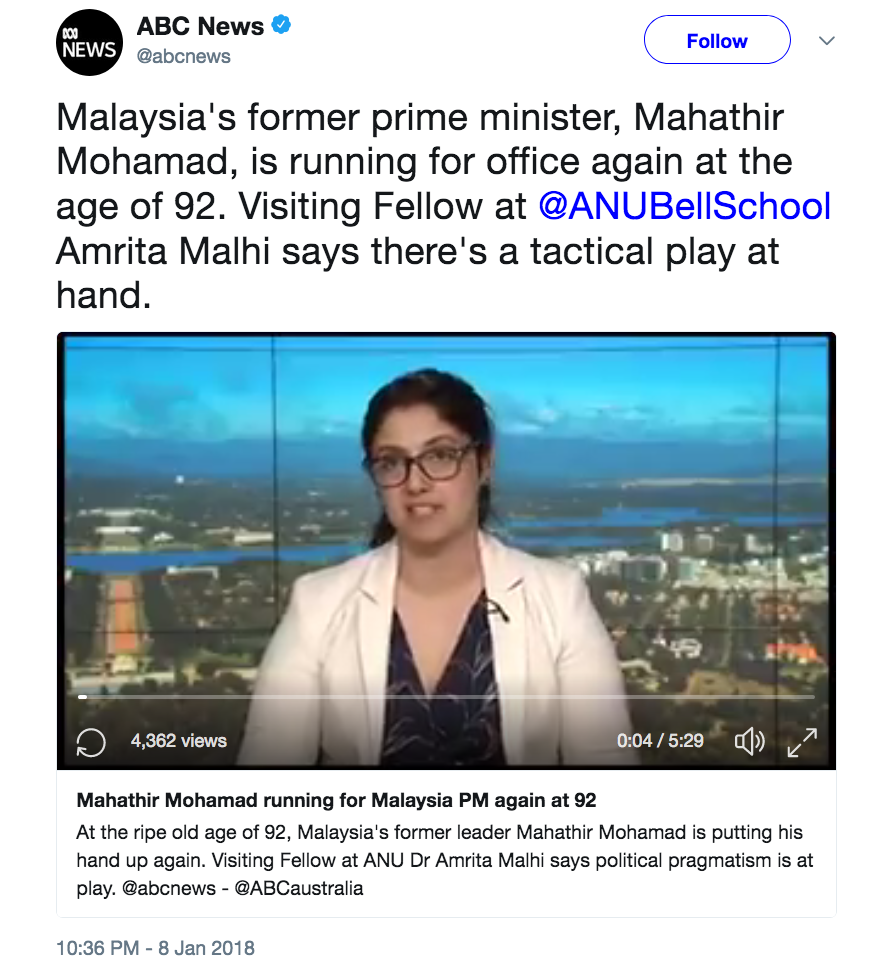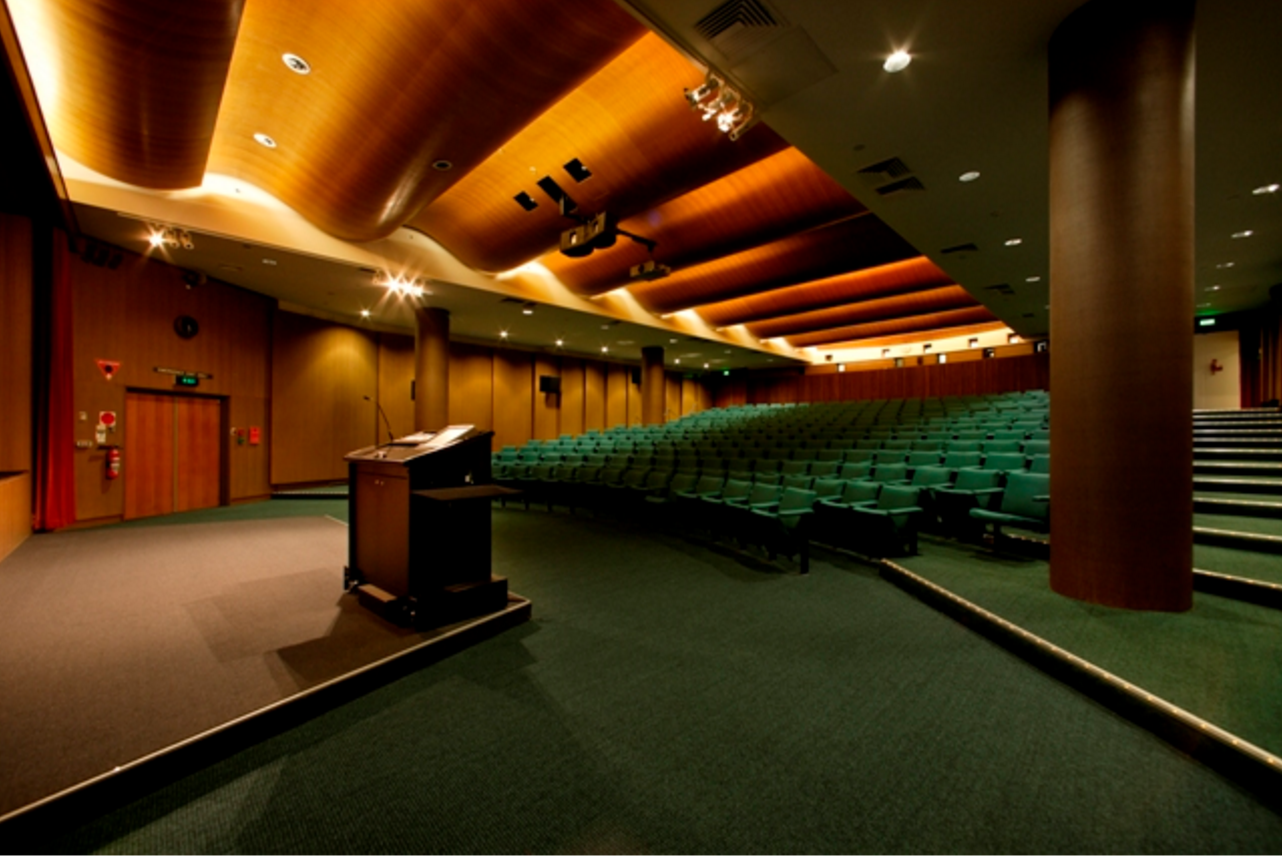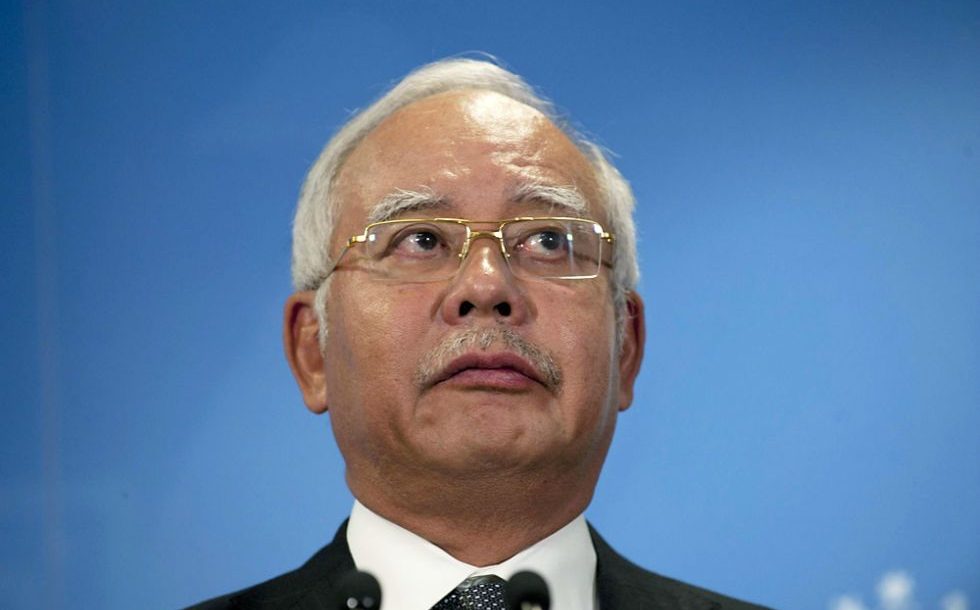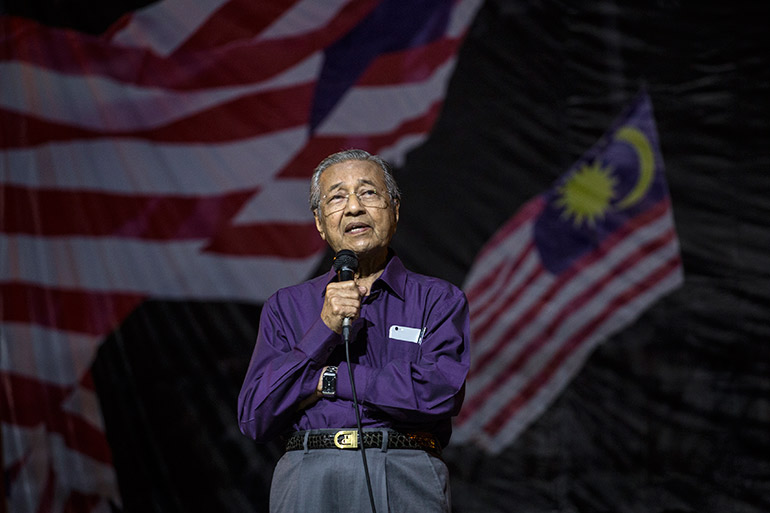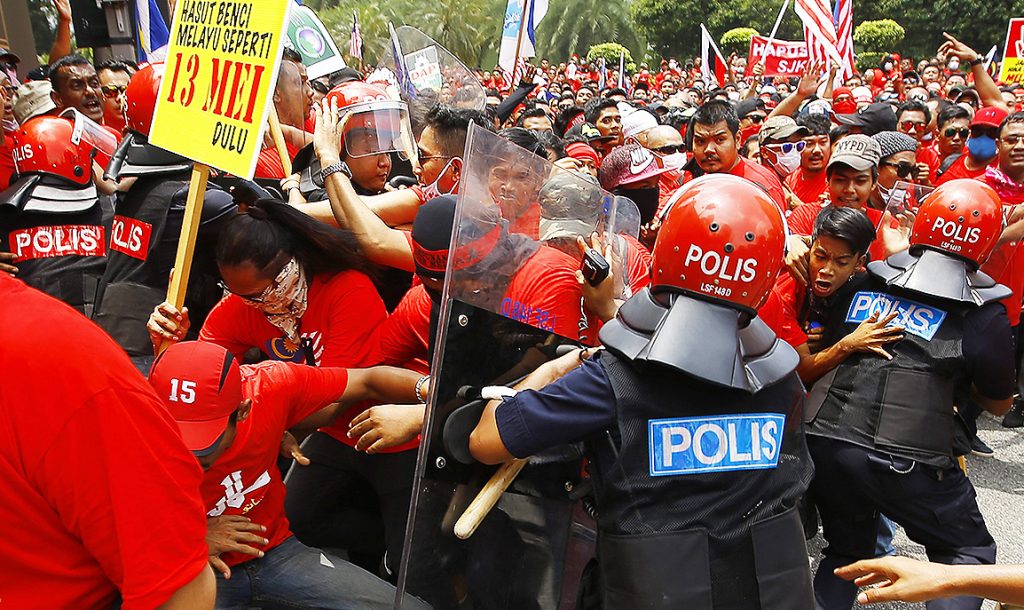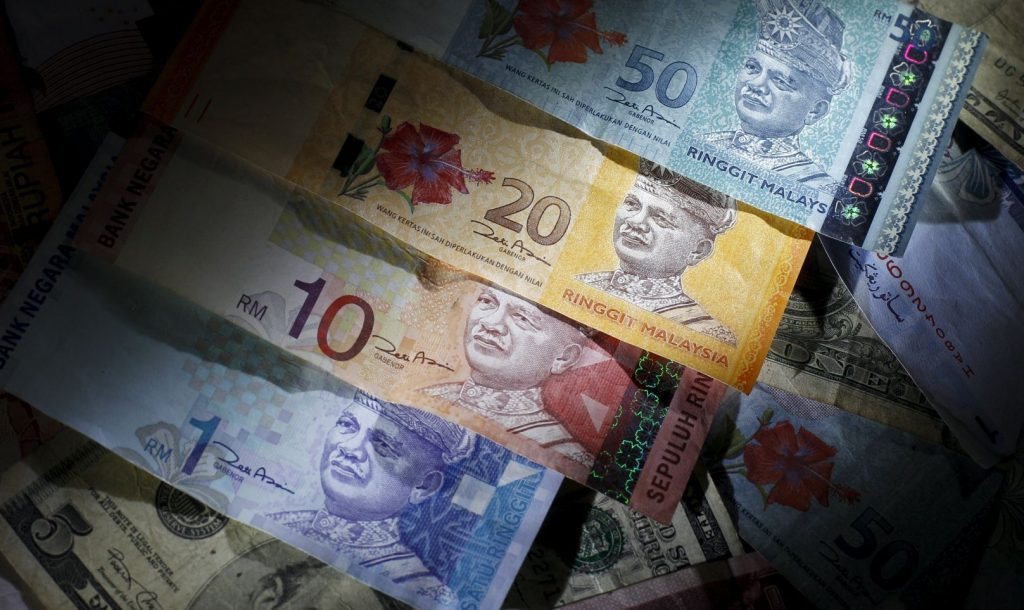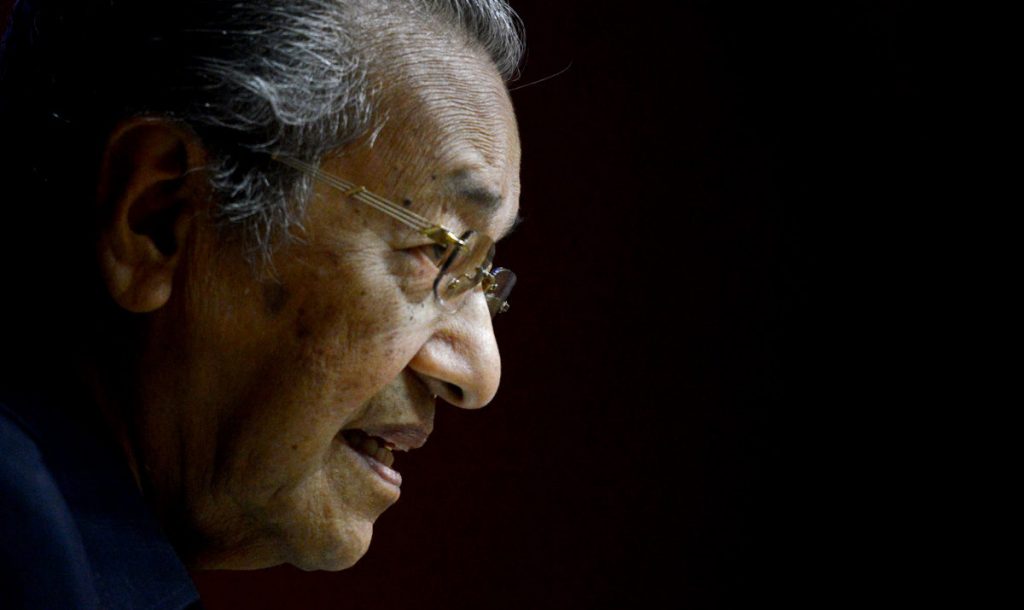In a country where cash is king, soon nothing will happen without bribery, alleges former PM.
Former Prime Minister Mahathir Mohamad looked on Thursday like a man with important calculations to make. Even as he smiled and laughed, he seemed quiet and reflective as he discussed Malaysia’s dramatic political realignment.
“We had a wrong understanding of the level of concern on the part of the people about what is happening,” he said.
A few days earlier, Mahathir had campaigned with the opposition Pakatan Harapan coalition in twin by-elections, called after two incumbents died in a helicopter crash. Held in the federal electorates of Sungai Besar and Kuala Kangsar, both by-elections were won with increased margins by the ruling Barisan Nasional coalition.
Read more


